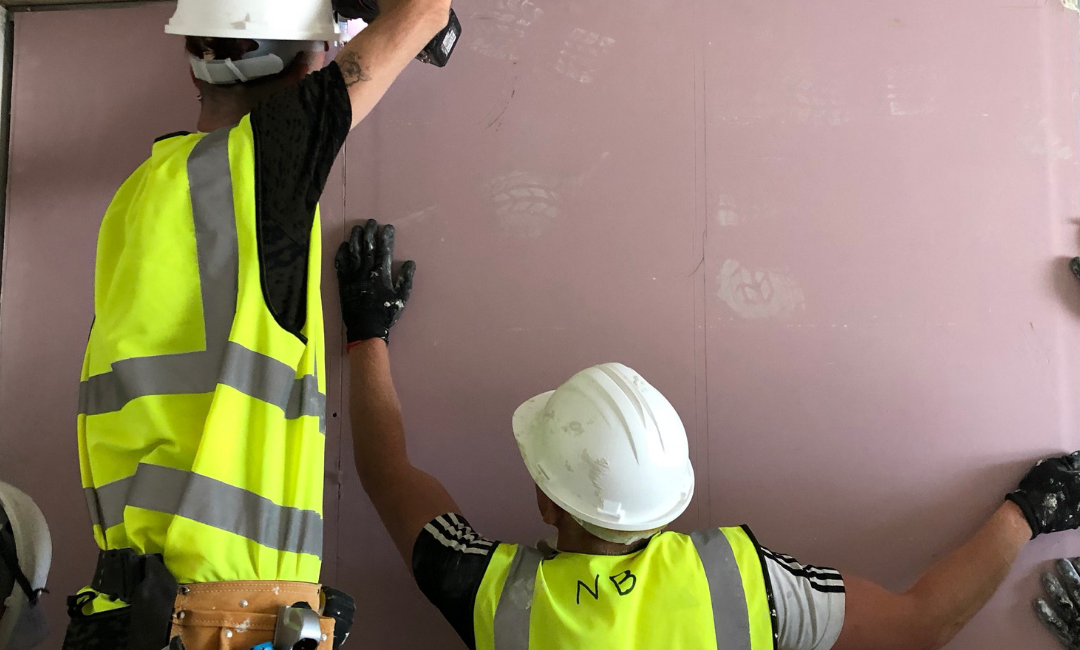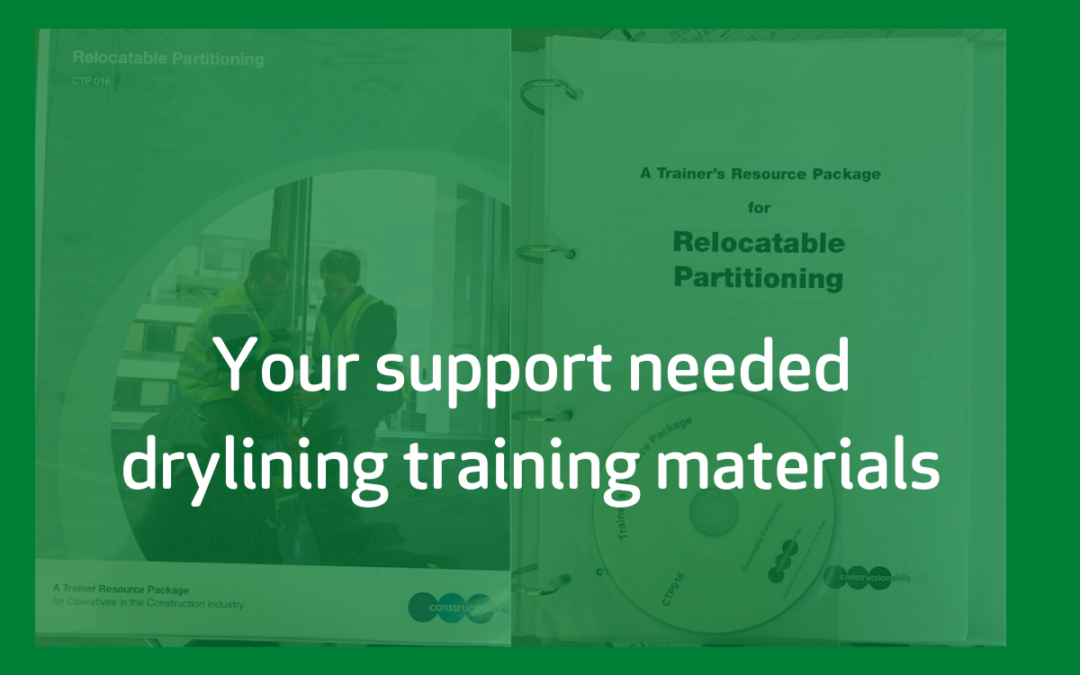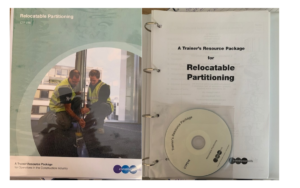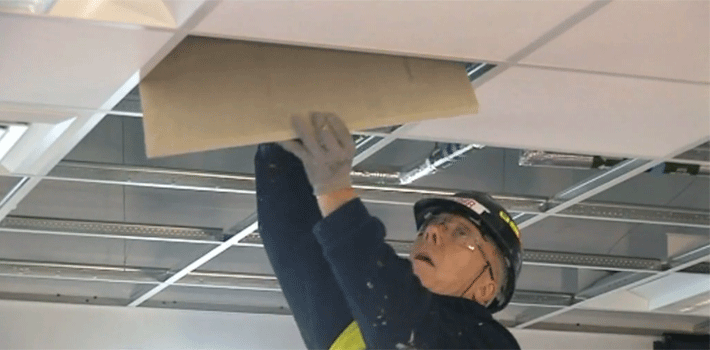
Employers and drylining experts needed to help develop traineeship
CITB has started work on a Traineeship for Drylining occupations and need support from employers and subject matter experts. The next development meeting is scheduled for Wednesday 15 December starting at 13:00 to get involved please email alexandra.lee@citb.co.uk
What’s a Traineeship
A traineeship is a skills development programme that includes a work experience placement. Traineeships help prepare young people aged 16 to 24, or 25 with an education, health and care plan, for employment or an apprenticeship. Traineeships must include at least 70 hours of work experience placement. They can last from 6 weeks up to 1 year, but most last less than 6 months. Employers can offer a work experience placement to a trainee. They will work with a training provider to design the workplace element of the programme. Traineeships are introductory courses to attract individuals, at risk of becoming long term unemployed, into employment the training should be broad and provide as much variety as possible with the work experience placement focused on a specialism.
The training provider will assess the needs of the trainee. Trainees may need pre-employment training before starting their work experience placement. Employers will then work with the training provider to plan and agree:
- the length of the work experience placement
- the days the trainee works
- how the programme will be delivered
Traineeships are flexible. Employers can change the programme as they go to make sure they and the trainee get the most out of it.
Employers must provide:
- a safe, meaningful and high-quality work experience placement
- a minimum of 70 hours of work experience placement over the duration of the traineeship (if the trainee claims benefits, the placement cannot last longer than 240 hours)
- constructive feedback and advice to the trainee
- an interview for an apprenticeship or job in their organisation at the end of the traineeship if one is available
- an exit interview at the end of the traineeship with meaningful written feedback if no job is available
Offering a work experience placement gives employers the chance to:
- get to know and work with a young person to see if they’re right for an apprenticeship or job in their business
- design a programme that suits the needs of the trainee and their business
- develop current employees’ experience in training and mentoring
- recruit new talent for their business
- claim an employer incentive of £1,000 when a work experience placement of over 70 hours has been completed
Employers who make new work experience placement opportunities available may be eligible for an incentive payment of £1,000 per trainee. They can claim this incentive for up to 10 learners per region. Employers decide how to use the money. You can view more guidance on employer incentive payments and how to claim them.
Traineeships are funded by the government. Traineeships are free to the employer, but they may choose to support trainees with expenses such as transport and meals. If you are interested in offering a work experience placement for a traineeship:
- Contact the National Apprenticeship Service to register your interest and to ask for advice and support on traineeships. They can help you set up a traineeship and advertise it on Find a traineeship.
- Partner with a training provider who will help you to design a traineeship that will meet your business needs. They will also advertise the work experience placement for you.
- Agree with the trainee and your training provider exactly what each of you expects from the traineeship.
George Swann FIS Skills and Training Lead says “Traineeships are part of the Governments Plans for Jobs; approximately 60% to 70% of people on construction training course delivered by FE do not enter the construction industry. By providing more variety in the college element, introducing individuals to the wide range of careers available, Dry Lining Fixer Boarder and Finisher, Ceiling and Partitions Fixer, Plasterer solid and fibrous something should hook their interest and the work experience placement will put them in the work environment and show what the occupational specialism is about. It’s worth employers giving this a try as addressing the labour shortages is all about home grow talent and if you find capable individuals, well enough said. I encourage all employers and subject matter experts to get involved with the development work of CITB the more variety finishes, and interiors Traineeships have the greater the exposure of the fantastic opportunities this sector has to offer and more young people it should attract….Bigger net more fish”.






